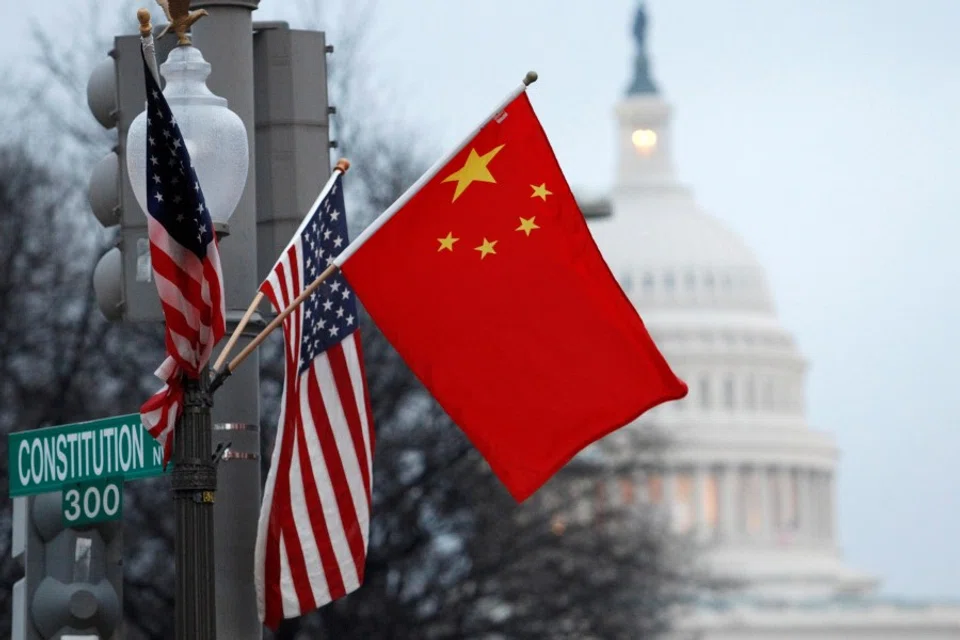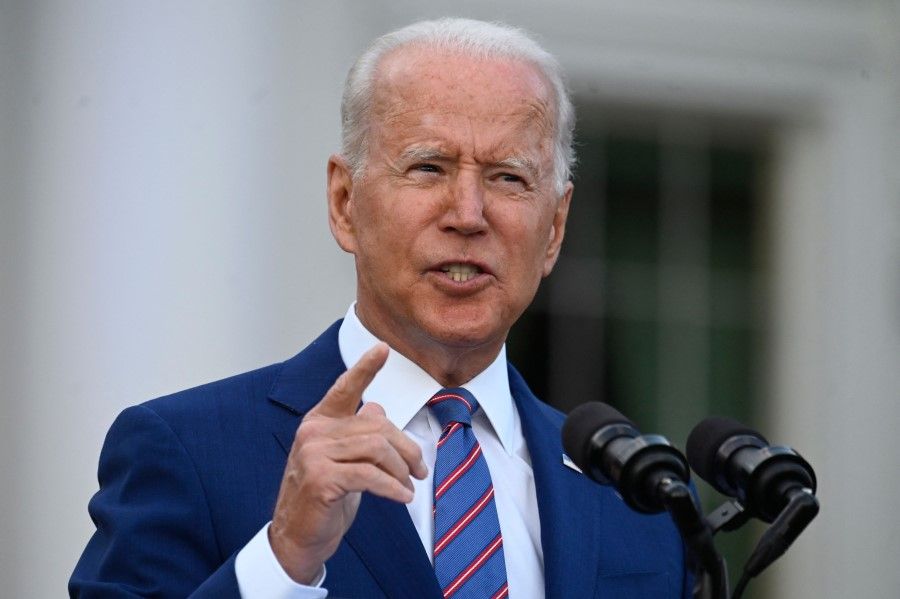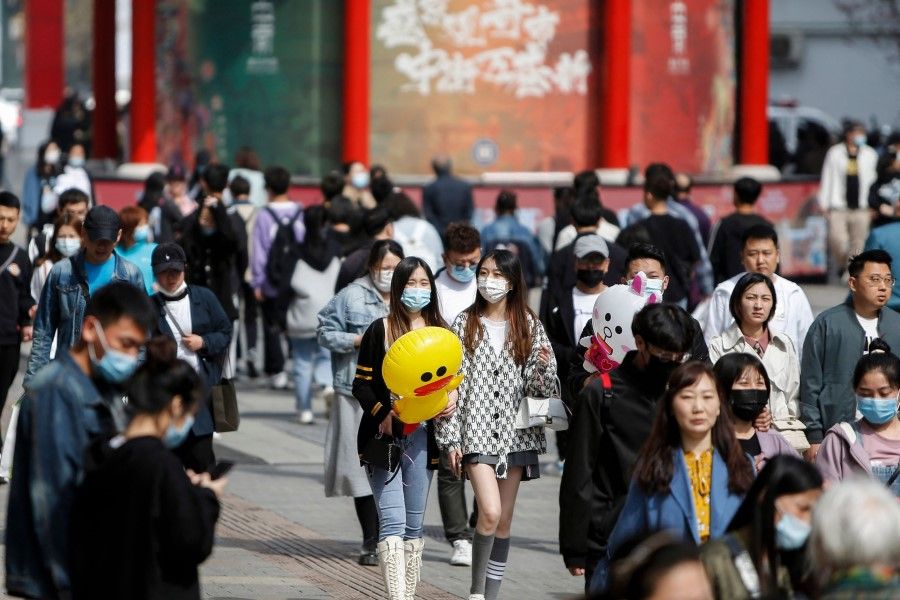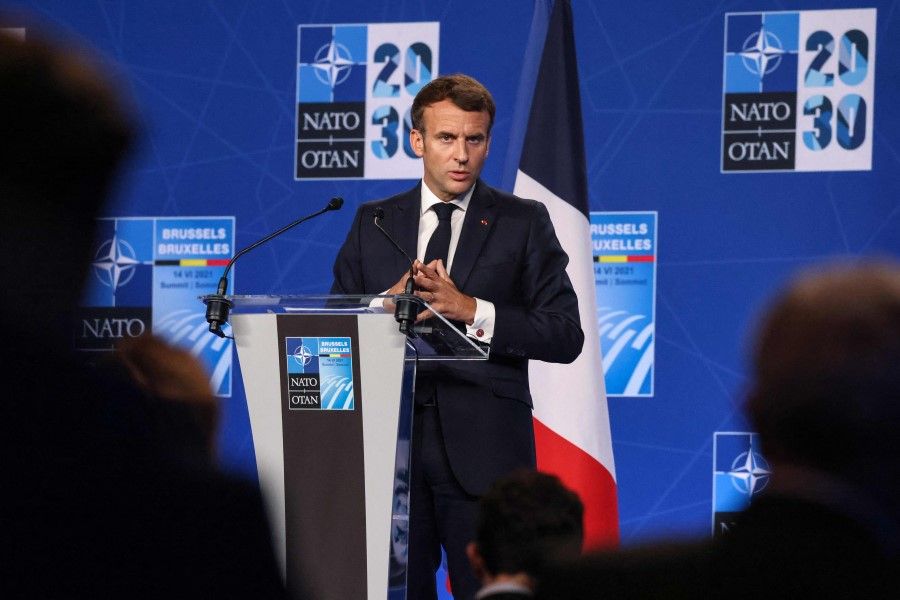How China might just win the China-US competition of governance systems

Geopolitical analyst Robert D. Kaplan said in an article in the National Review that the Cold War did not end on the battlefield, but inside the Soviet Union.
At the time, the Soviet economy was weak and uncompetitive, and in the end it faced an internal crisis that destroyed its society and the eastern European empire.
The dissolution of the Soviet Union is significant in the ongoing tussle between China and the US.
A fear that China might win
It bears consideration that since US President Joe Biden took office in January, he has often publicly expressed concern that "China might win".
In February, Biden said: "We're at an inflection point between those who argue that, given all the challenges we face - from the fourth industrial revolution to a global pandemic - that autocracy is the best way forward, they argue, and those who understand that democracy is essential - essential to meeting those challenges." He repeated this theme in April, where he felt the world is at an inflection point in deciding whether democracy can play a role in the 21st century. And in May, in an interview with New York Times columnist David Brooks, he said specifically: "We're kind of at a place where the rest of the world is beginning to look to China."
It is worth noting that Biden has not only said this in official speeches, but also mentioned it at intervals, reflecting his deep fear and anxiety. Now, he is worried that China is a key competitor of the US - and that it might win.

Since the storming of the Capitol on 6 January, the US has become increasingly worried about domestic divisions and political polarisation, to an unprecedented degree.
Political scientist Samuel Huntington felt that a nation is an "imagined community" because it is a "remembered community". He explained: "No nation exists in the absence of a national history, enshrining in the minds of its people common memories of their travails and triumphs, heroes and villains, enemies and wars, defeats and victories." And no matter how skewed these memories are, they provide collective memories and national cohesiveness.
Social media is dividing the rapidly fragmenting US, while prompting powerful transnational corporations and political vested interests to drift away from the US.
On another note, China is an ancient civilisation with a Han majority. More importantly, China is carefully managing social media to prevent division in the country. Its development in the high-tech sector has allowed the government to use social media as a means for patriotic education and social governance to boost national cohesiveness.
...rather than a tussle between two armies and two political systems, one might say it is a competition between the governance systems of two fast-evolving countries, under the influence of rapidly globalising technologies.
Kaplan said people should remember that US democracy is still an experiment, which means it is "fragile and perhaps even ephemeral". Unlike centuries of nationalism built on blood and soil, the US has had "democratic ideals that require constant renewal and thrive in a context of moderation and compromise".
A battle between two governance systems
US intellectuals and political leaders are increasingly worried that a US-China face-off may go in a surprising direction, because fundamentally, rather than a tussle between two armies and two political systems, one might say it is a competition between the governance systems of two fast-evolving countries, under the influence of rapidly globalising technologies.
One important reason for the division and political polarisation in the US is that over the past 40 years, the lives of the bottom 40% of the US population has not improved - this was also a key reason why Donald Trump was elected in 2016.

While polarisation grows and shrinks with the election cycle, it may well be a lasting characteristic of today's US politics, because many factors causing the polarisation - differences in political ideology, tension between whites and non-whites, the general weakening of governance among both parties in Washington - will not go away in the short term.
One key question that has surfaced but been avoided by the US mainstream is whether the US is still a normally functioning democracy, or if its objectives have turned it into a plutocracy.
The landmark ruling of "Citizens United v. Federal Election Commission" - along with other decisions - overturned many legal restrictions against using money to influence the political process.
US economist and Nobel Prize recipient Joseph Stiglitz has written about the worsening inequality in the US. In his essay "Of the 1%, by the 1%, for the 1%" (March 2011), he notes that wealth and political power have shifted from the US masses to the privileged elite.
Financial Times columnist Martin Wolf wrote: "The Supreme Court's perverse 2010 'Citizens United' decision held that companies are persons and money is speech. That has proved a big step on the journey of the US towards becoming a plutocracy."
Clearly, what has led to this shift of large-scale political power from the US masses to the minority elite is a precedent-setting decision by the US Supreme Court, which had an enormous influence. The landmark ruling of "Citizens United v. Federal Election Commission" - along with other decisions - overturned many legal restrictions against using money to influence the political process.
This is why the Chinese Communist Party (CCP) has to make it the government's central mission to improve people's lives, and prevent powerful commercial groups from holding the government hostage for the sake of narrow personal interests.
China and the US in a boat race
One analogy is that China and the US are in a boat race. The individuals and companies in the US may be very capable and innovative, but internal division and polarisation means that those in the US boat are not all rowing in the same direction. They argue and have different objectives, and slow down the boat. In contrast, those in the China boat row along with the coxswain, moving forward as they work in unison, which gives China a clear advantage in this long-term competition.
After hitting out strongly at Made in China 2025, the US started to copy China's industrial policy, which goes against the US ideology that the market knows everything. Asia's economic growth philosophy blends traditional values of hard work and careful savings with wise government intervention when the market fails, to create a balanced and vibrant private sector.
To the Biden administration, China has negated two main pillars of Western policy framework: the claim that no major economic development can happen without domestic political freedom, and that a one-party system cannot take the lead in serious technological innovation.

The governments of China and most Asian countries agree with Amartya Sen, who was awarded the Nobel Memorial Prize in Economic Sciences: "The invisible hand of the market has often relied heavily on the visible hand of government."
To the Biden administration, China has negated two main pillars of Western policy framework: the claim that no major economic development can happen without domestic political freedom, and that a one-party system cannot take the lead in serious technological innovation.
Imitation the greatest form of flattery
Take China's solar energy sector, where China has built an end-to-end supply chain. Currently, most of the global production of key materials for polysilicon solar panels comes from China, while early subsidies and support have given the sector sustainable global competitiveness, with the result that three-quarters of solar panels globally are supplied by China companies.
As Oscar Wilde said: "Imitation is the sincerest form of flattery that mediocrity can pay to greatness." Biden has not attacked China as Trump did, but he is replicating China's industrial policy.
In June, Biden proposed a US$174 billion fund to develop electric vehicles (EVs) and EV charging stations, with US$100 billion in consumer rebates and US$15 billion to build 500,000 EV charging stations by 2030.
US allies see China differently
The appeal of the China market has led to US allies having very different strategic assessments of China. The importance of the China market to the exports, employment, and economic prosperity of the EU has prompted EU countries to publicly object to the US's anti-China policy.
German Chancellor Angela Merkel has a very different assessment of China to the US - she advocates staying alert to competition, while maintaining contact with China. This difference will not be easily changed.
Part of the reason for this difference is the general worry about the US among its allies. Giving his first speech at the joint session of the US Congress on 28 April, Biden said that in his conversations with world leaders since taking office in January, the comment that he has heard most is: "We see America is back but for how long?"
And on 14 June, after the NATO summit in Brussels, French President Emmanuel Macron told the media: "NATO is a military organisation, the issue of our relationship with China isn't just a military issue... It is much larger than just the military issue. It is economic. It is strategic. It is about values."

In an interview with the Financial Times on 21 June, Merkel's likely successor Armin Laschet warned against a cold war with China. He was of the view that working with Beijing was in the best interests of the EU, and warned of the dangers of starting a new Cold War with China, while China had to be careful of overconfidence.
After the fall of the Berlin Wall, arrogance led the US to see itself as indispensable, and it went from a benign dominant force to an arrogant superpower, leading to a series of imperialist diplomatic policies and endless wars, depleting the national coffers and lowering morale.
China would be wise and adopt low-key strategies. The current fear and anxiety is causing the US to act like a wounded animal; and a wounded lion is dangerous.
China should keep a low profile
With its rise, China also has to watch out for the possible pitfalls of such arrogance; if it results in a high and mighty attitude, one might slip on a banana peel, whether it happens to be there or if it is deliberately put there by some enemy.
China would be wise and adopt low-key strategies. The current fear and anxiety is causing the US to act like a wounded animal, and a wounded lion is dangerous.
The US has strong abilities in innovation and recovery, and it would be risky for China to underestimate the US's powers of recovery.
Compared to the US's arrogant interventionism, China's diplomatic policy of non-intervention and of respecting other countries' sovereignty is a great advantage.
As Chinese President Xi Jinping said at the Davos forum in January: "No two leaves in the world are identical, and no histories, cultures or social systems are the same... Difference in itself is no cause for alarm. What does ring the alarm is arrogance, prejudice and hatred; it is the attempt to impose hierarchy on human civilization or to force one's own history, culture and social system upon others."
After a century of humiliation, there exists a sense of unease in China, coupled with a historical and cultural superiority complex, which sometimes lead to overreaction. But China's great achievements will quickly give it more confidence, and help it achieve a new equilibrium. And this framework might steadily evolve into a more gentle authoritarianism, which would make China's system more appealing to other developing countries and regions, including Taiwan.
Related: Strategic Competition Act: The US targeting China through Cold War politics? | America turning to state intervention to win US-China tech war | Even as US-China competition intensifies, the world can look forward to a few good things | The politicisation of China-US trade ties: Showdown between capitalism and communism?
